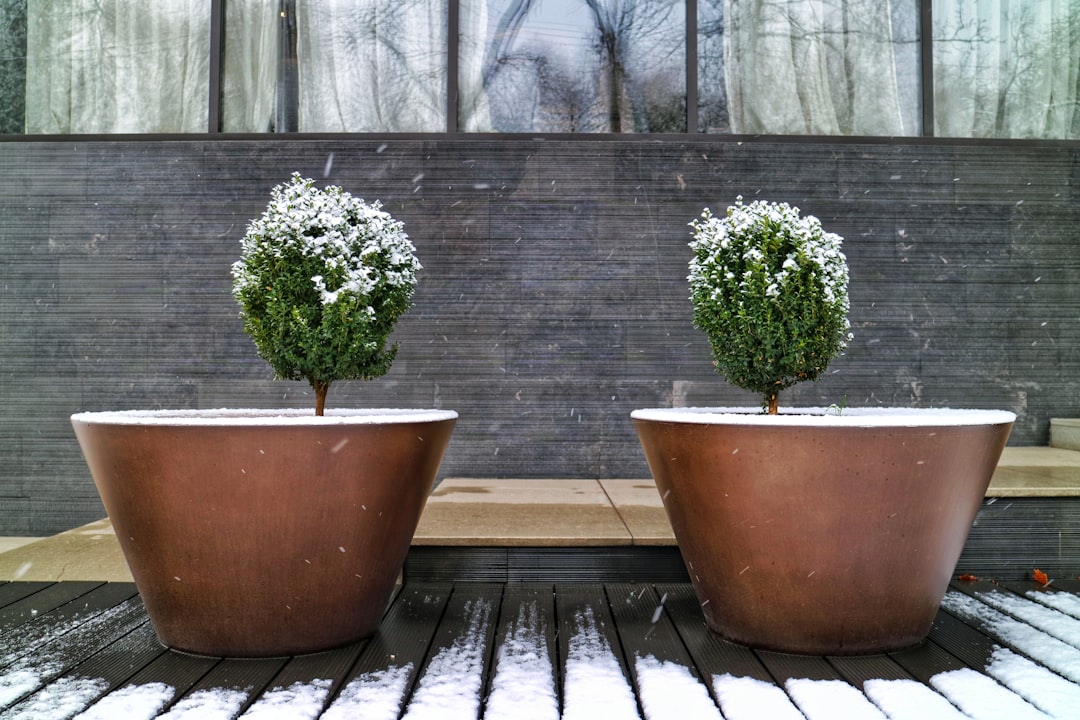Winter's Garden No-No's

When the cold winter months roll in and the ground freezes, it's a common misconception that all garden - related activities are fair game. However, performing some garden chores in winter can actually be quite harmful to your plants. Here are ten tasks you should avoid after the ground freezes to ensure the health and vitality of your yard garden.
1. Pruning Most Trees and Shrubs
Pruning is a crucial part of garden maintenance, but it's best to hold off on major pruning of most trees and shrubs once the ground freezes. Cold temperatures can cause the cuts to heal slowly, leaving the plants vulnerable to diseases and pests. The cold can also damage the exposed tissues, leading to die - back. For example, if you prune a rose bush in freezing weather, the open wounds can allow ice to form inside the plant, causing cells to burst and potentially killing the bush.
2. Transplanting
Transplanting plants is a stressful process for them at any time, and in winter, it becomes even more so. When the ground is frozen, it's difficult to dig up the plant without causing significant root damage. Additionally, the cold soil doesn't provide a good environment for the roots to establish themselves. A newly transplanted tree in frozen ground may not be able to absorb water and nutrients properly, leading to its decline over time.
3. Fertilizing
Fertilizers are designed to provide nutrients to plants to promote growth. But in winter, most plants are in a dormant state. Applying fertilizer when the ground is frozen won't be beneficial as the plants aren't actively growing and can't take up the nutrients. Moreover, the excess fertilizer can leach into the groundwater or runoff into nearby water bodies, causing environmental problems.
4. Over - watering
It might seem counterintuitive, but over - watering in winter can be just as harmful as under - watering. When the ground is frozen, water can't penetrate the soil easily. Excess water can pool on the surface, freeze, and create an ice layer that can suffocate the roots. This can lead to root rot and ultimately kill the plant. It's important to check the soil moisture levels carefully before watering in winter.
5. Mowing the Lawn
Once the grass has gone dormant and the ground is frozen, mowing the lawn is a bad idea. The cold and brittle grass blades can break easily, and the mower can cause damage to the soil surface. Mowing at this time can also disrupt the natural insulation provided by the grass, leaving the soil and roots more exposed to the cold.
6. Removing Mulch Prematurely
Mulch serves as an important insulator for the soil and plant roots during winter. Removing mulch too early, when the ground is still frozen, can expose the roots to the cold temperatures. The mulch helps to keep the soil temperature more stable, preventing rapid freezing and thawing cycles that can damage the roots. Wait until the ground has thawed and the threat of frost has passed before removing the mulch.
7. Tilling the Soil
Tilling the soil in winter when it's frozen can cause more harm than good. Frozen soil is hard and compacted, and tilling can break up the soil structure, making it more difficult for air, water, and roots to penetrate. It can also disrupt the beneficial soil organisms that are in a dormant state during winter.
8. Planting New Seeds
Seeds need the right conditions to germinate, and frozen ground doesn't provide those conditions. Planting new seeds in winter won't result in successful germination as the cold soil is too inhospitable. The seeds may rot or be damaged by the cold before they have a chance to sprout.
9. Using Chemical Herbicides
Chemical herbicides are less effective in cold temperatures. The plants are dormant, and the herbicides may not be absorbed or translocated properly within the plants. Additionally, the chemicals can persist in the environment for longer periods in cold weather and may have unintended effects on non - target plants and organisms.
10. Heavy Foot Traffic on the Lawn
Walking or allowing heavy equipment on the frozen lawn can cause compaction. The frozen grass and soil are more brittle, and the pressure can damage the grass blades and compress the soil. This can lead to poor drainage and reduced oxygen availability for the roots, which can harm the overall health of the lawn.
By avoiding these ten tasks after the ground freezes, you can protect your yard garden and ensure that your plants are ready to thrive come spring. It's important to understand the natural cycles of your garden and work with them rather than against them during the winter months.